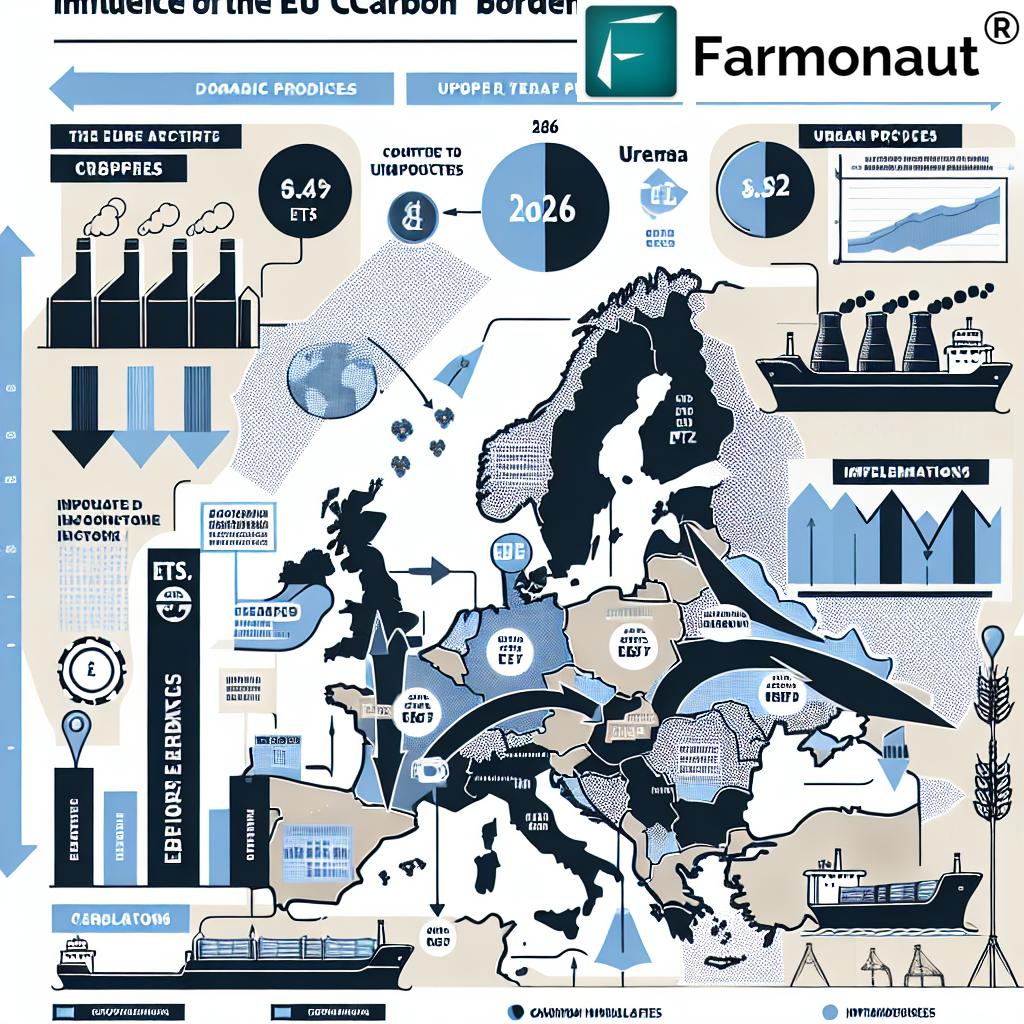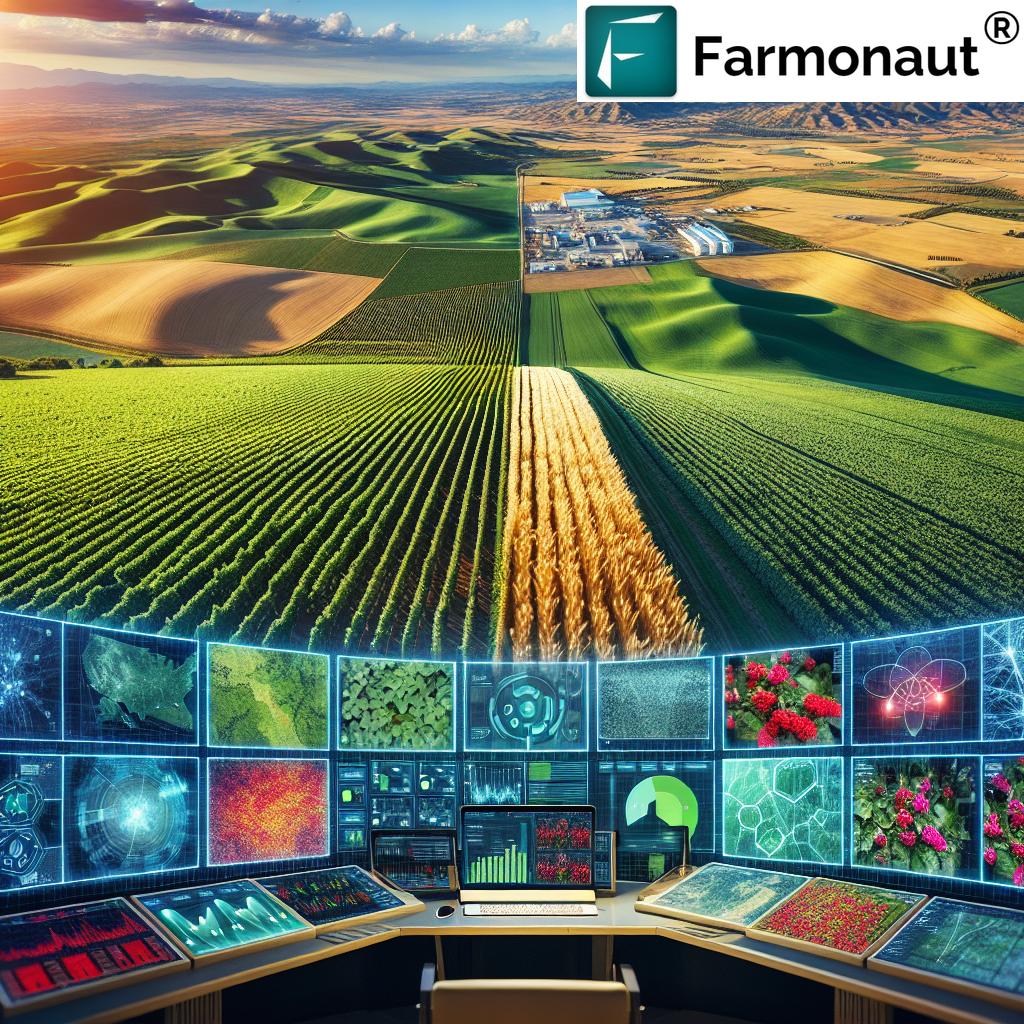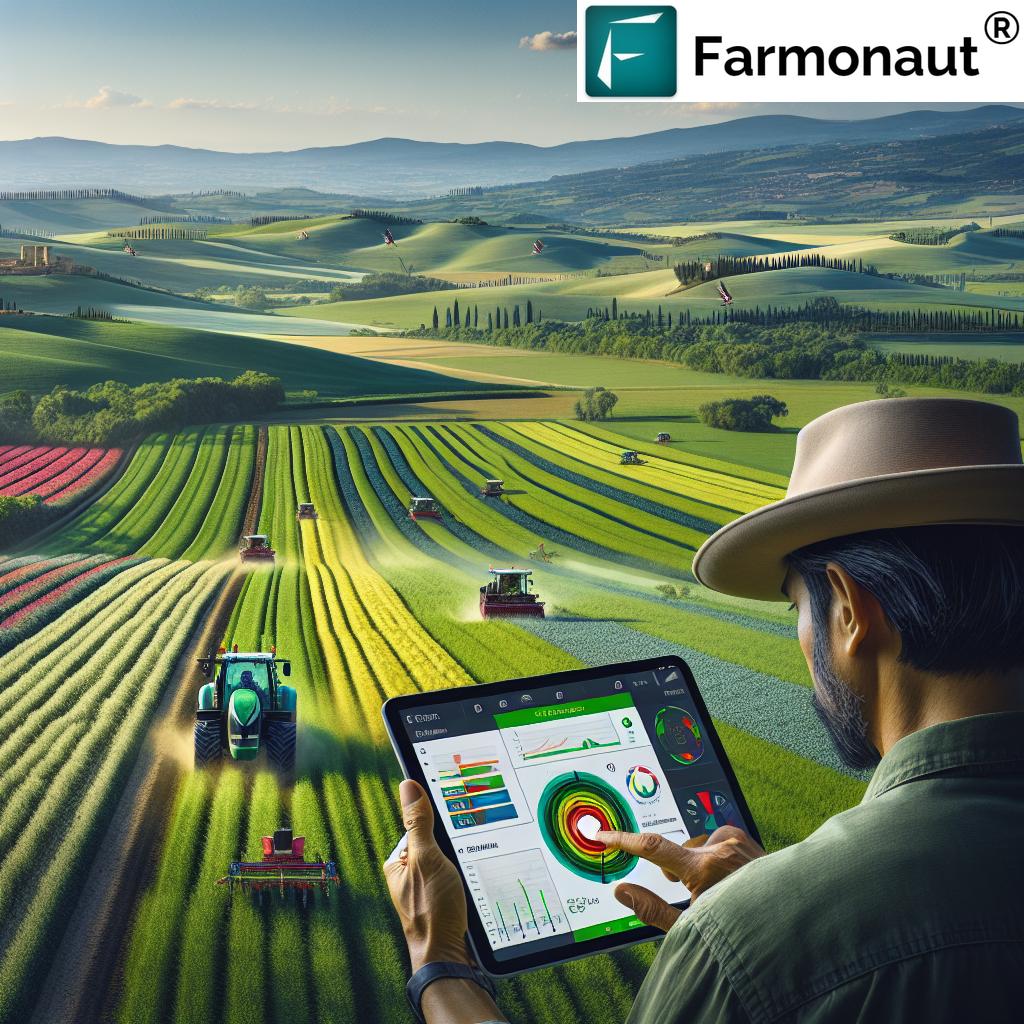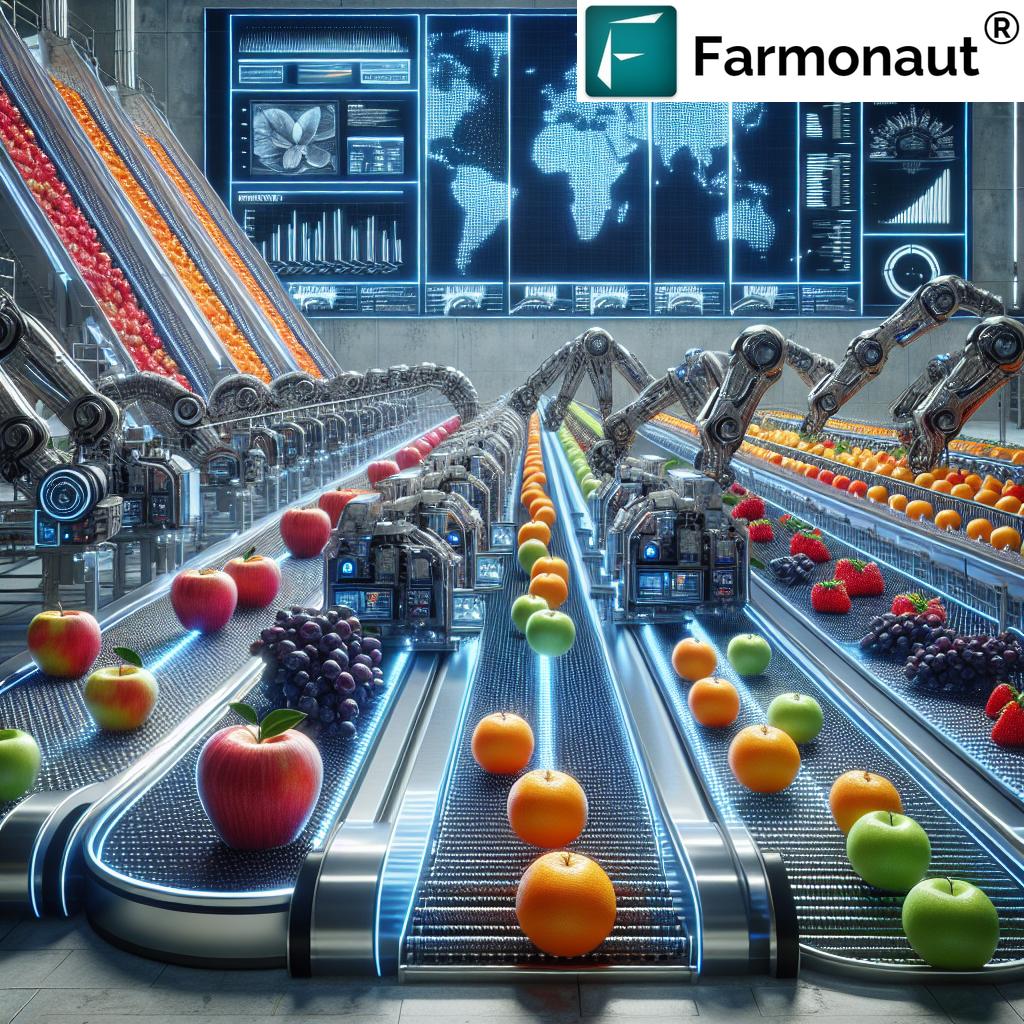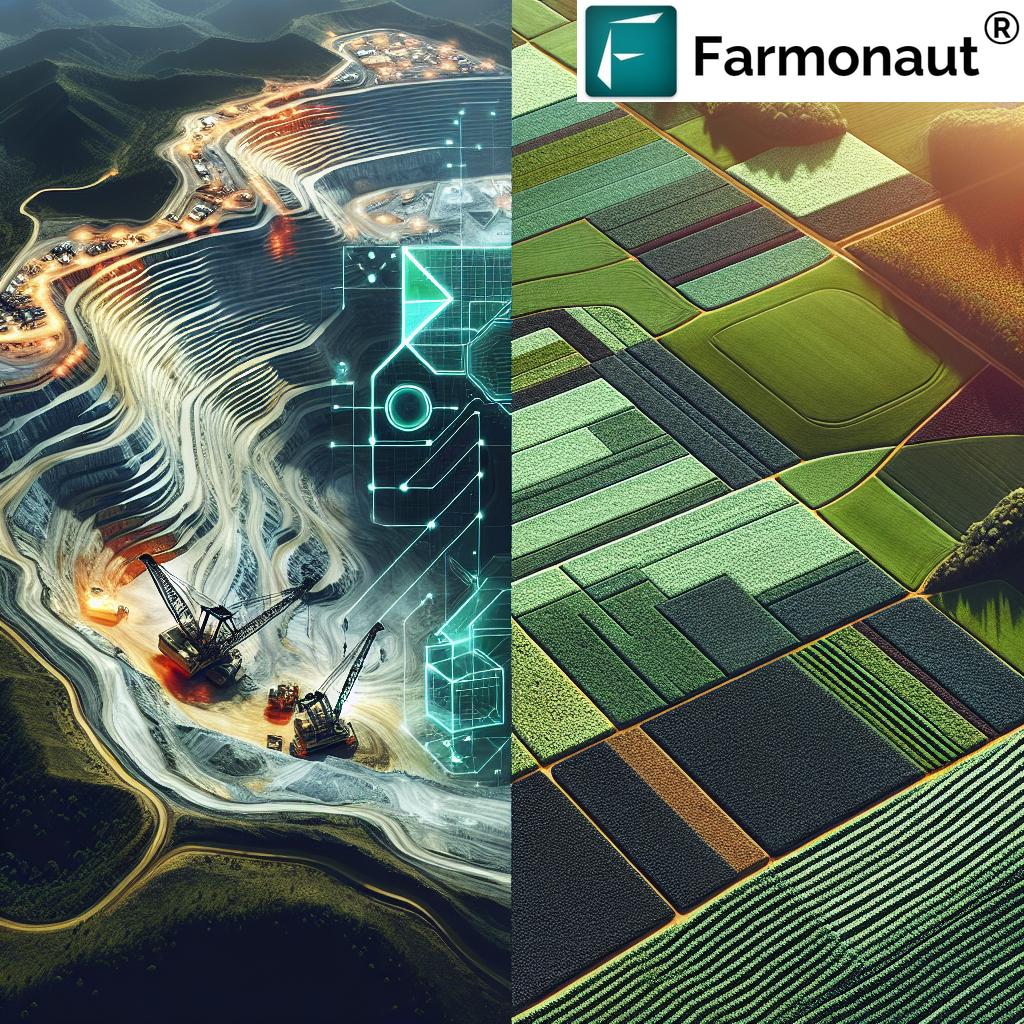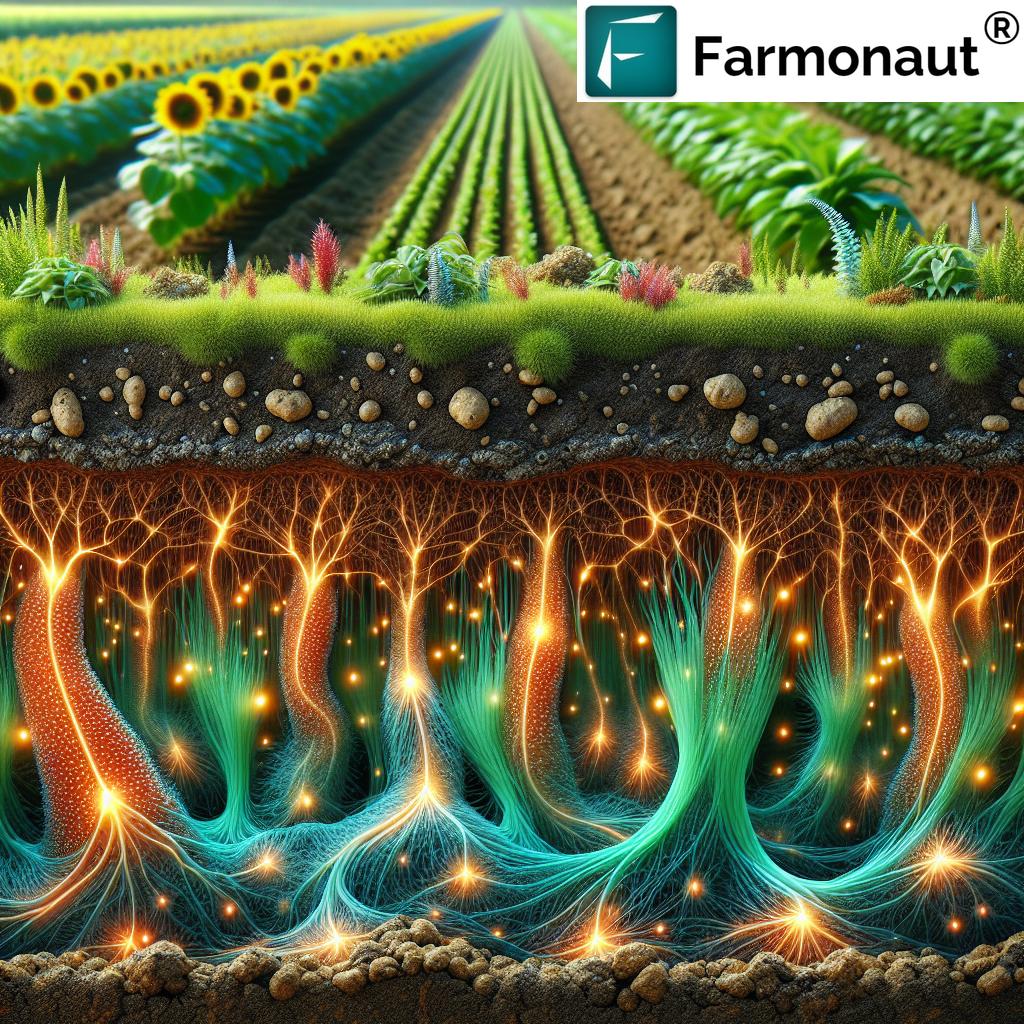Boosting European Agricultural Competitiveness: Smart Investments and Sustainable Farming Solutions for EU Farmers

“EU farmers face a triple challenge: 100% increase in fertilizer costs, climate change impacts, and evolving policy frameworks.”
In today’s rapidly evolving agricultural landscape, European farmers and agri-cooperatives face unprecedented challenges in maintaining their competitiveness on the global stage. As we delve into the intricacies of European agricultural investment and sustainable farming practices, we aim to shed light on the multifaceted approach needed to boost agricultural competitiveness in the EU. Our focus will be on smart investments, innovative technologies, and sustainable solutions that can propel the European farming sector into a new era of productivity and resilience.
The Current State of European Agriculture
European agriculture stands at a critical juncture. The sector is grappling with a perfect storm of challenges, including:
- Skyrocketing fertiliser costs
- Unpredictable climate change impacts
- Evolving agricultural policy frameworks
- Increasing global competition
- Pressure to adopt sustainable practices
These factors collectively pose significant threats to farm productivity and the overall competitiveness of EU farmers. However, they also present opportunities for innovation and growth. By embracing smart agricultural investments and sustainable farming solutions, European farmers can not only overcome these challenges but also position themselves as leaders in the global agricultural market.
Smart Investments: The Cornerstone of Agricultural Competitiveness
To remain competitive, European agriculture must prioritize smart investments that leverage technology, enhance productivity, and promote sustainability. Here are some key areas where strategic investments can make a significant impact:
1. Precision Agriculture Technology
Precision agriculture represents a paradigm shift in farming practices. By utilizing advanced technologies such as GPS, sensors, and data analytics, farmers can optimize their resource use and maximize yields. Farmonaut, a leading agricultural technology company, offers innovative solutions in this domain, including satellite-based crop health monitoring and AI-driven advisory systems.
Key benefits of precision agriculture:
- Improved resource efficiency (water, fertilizers, pesticides)
- Enhanced crop yields and quality
- Reduced environmental impact
- Data-driven decision-making
2. Climate-Smart Agriculture (CSA) Technologies
With climate change posing significant risks to agricultural productivity, investing in climate-smart agriculture technologies is crucial. These technologies help farmers adapt to changing climate conditions while simultaneously reducing greenhouse gas emissions.
Examples of CSA technologies:
- Drought-resistant crop varieties
- Efficient irrigation systems
- Soil carbon sequestration techniques
- Weather forecasting and early warning systems
3. Digital Farm Management Systems
Digital farm management systems integrate various aspects of farm operations, from crop planning to harvest management. These systems provide farmers with valuable insights and help streamline operations, leading to increased efficiency and profitability.
Features of digital farm management systems:
- Real-time crop monitoring
- Inventory management
- Financial planning and analysis
- Integration with precision agriculture tools
Explore Farmonaut’s API for advanced farm management solutions
Sustainable Farming Practices: A Key to Long-term Competitiveness
Sustainability is no longer just a buzzword; it’s a critical factor in maintaining long-term agricultural competitiveness. EU farmers must adopt sustainable farming practices that not only protect the environment but also ensure economic viability.
1. Organic Farming
The demand for organic products continues to grow in Europe and globally. Transitioning to organic farming can open up new market opportunities and premium pricing for farmers.
Benefits of organic farming:
- Reduced environmental impact
- Higher profit margins on products
- Improved soil health and biodiversity
- Alignment with EU Green Deal objectives
2. Agroforestry and Silvopasture
Integrating trees and shrubs into crop and animal farming systems can enhance biodiversity, improve soil health, and create additional income streams.
Advantages of agroforestry:
- Diversified income sources
- Enhanced carbon sequestration
- Improved water management
- Increased resilience to climate change
3. Conservation Agriculture
Conservation agriculture focuses on minimizing soil disturbance, maintaining soil cover, and practicing crop rotation. These practices help preserve soil health and reduce production costs over time.
Key principles of conservation agriculture:
- Minimal tillage
- Permanent soil cover
- Crop diversification
- Integrated pest management
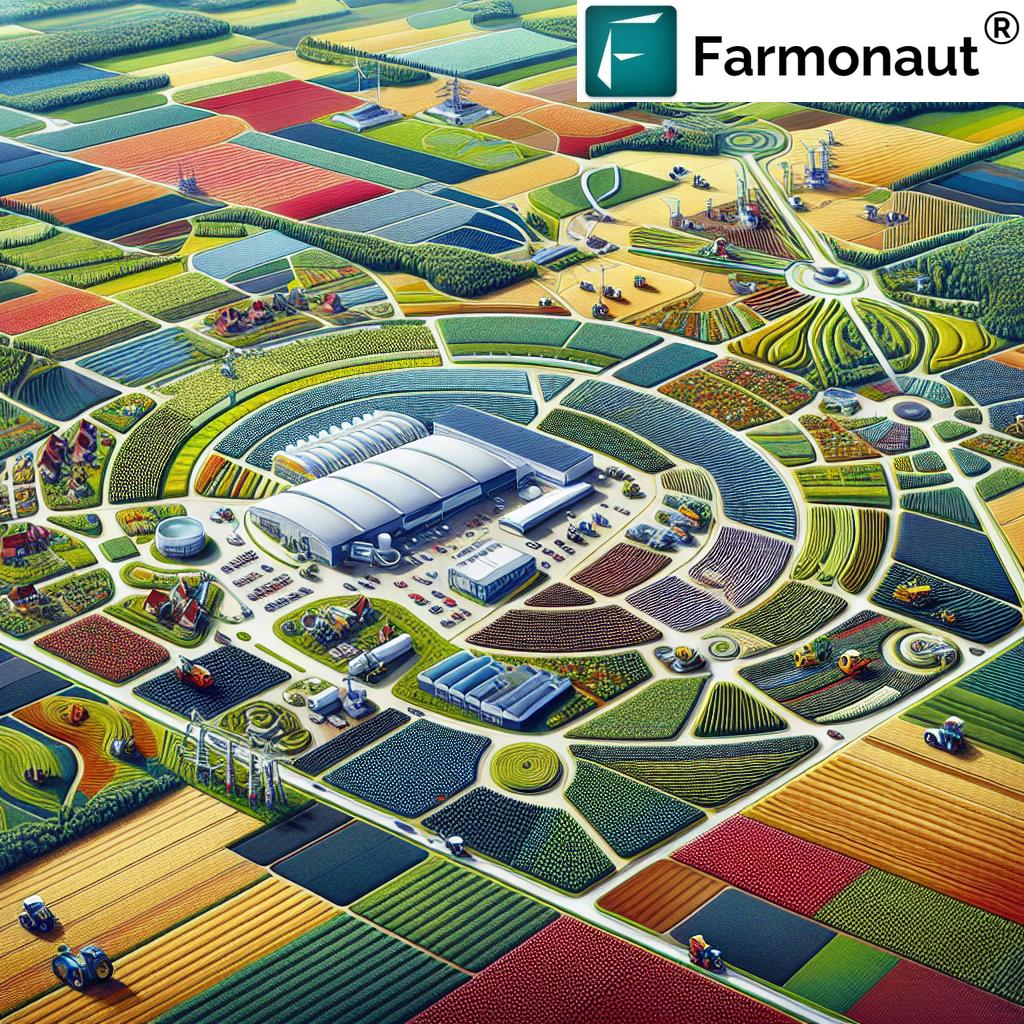
The Role of Technology in Enhancing Agricultural Competitiveness
Technology plays a pivotal role in modernizing agriculture and boosting competitiveness. Here are some key technological advancements that are transforming European farming:
1. Internet of Things (IoT) in Agriculture
IoT devices enable real-time monitoring of farm conditions, from soil moisture to crop health. This data-driven approach allows for more precise and timely interventions.
Applications of IoT in agriculture:
- Smart irrigation systems
- Livestock monitoring and management
- Automated climate control in greenhouses
- Supply chain tracking and traceability
2. Artificial Intelligence and Machine Learning
AI and machine learning algorithms can analyze vast amounts of agricultural data to provide actionable insights and predictions. Farmonaut’s Jeevn AI Advisory System is an excellent example of how AI can be leveraged to improve farm productivity.
Benefits of AI in agriculture:
- Predictive analytics for crop yield and disease outbreaks
- Automated pest and disease detection
- Optimized resource allocation
- Personalized crop management recommendations
Check out Farmonaut’s API Developer Docs for AI-powered agricultural solutions
3. Blockchain Technology for Traceability
Blockchain technology offers unprecedented transparency and traceability in the agricultural supply chain. This is particularly important for EU farmers looking to differentiate their products in the global market.
Advantages of blockchain in agriculture:
- Enhanced food safety and quality assurance
- Improved supply chain efficiency
- Reduced fraud and counterfeiting
- Increased consumer trust and brand loyalty
Policy Framework and Support for Agricultural Competitiveness
The EU’s agricultural policy framework plays a crucial role in shaping the competitiveness of the sector. Recent initiatives and programs aim to support farmers in their transition towards more sustainable and competitive practices.
1. Common Agricultural Policy (CAP) Reform
The latest CAP reform focuses on enhancing the sustainability and competitiveness of EU agriculture. Key elements include:
- Increased support for young farmers and small to medium-sized farms
- Greater emphasis on environmental and climate measures
- Promotion of innovation and knowledge transfer
- Simplification of administrative procedures
2. The European Green Deal and Farm to Fork Strategy
These initiatives set ambitious targets for sustainable food systems, including:
- Reducing the use of chemical pesticides by 50% by 2030
- Increasing organic farming to 25% of total farmland by 2030
- Reducing nutrient losses by at least 50%
- Promoting the adoption of precision agriculture techniques
3. InvestEU Program
“The ‘investEU’ program aims to mobilize €372 billion in public and private investments for sustainable EU agriculture by 2027.”
The InvestEU program provides crucial financial support for agricultural investments, focusing on:
- Sustainable infrastructure
- Research, innovation, and digitalization
- Small and medium-sized enterprises
- Social investment and skills
Challenges and Opportunities in Enhancing Agricultural Competitiveness
While the path to enhanced agricultural competitiveness is clear, EU farmers face several challenges that must be addressed:
1. High Production Costs
Rising input costs, particularly for fertilizers and energy, pose significant challenges to profitability. Smart investments in resource-efficient technologies can help mitigate these costs.
2. Market Volatility
Global market fluctuations and geopolitical events can significantly impact agricultural prices. Diversification and risk management strategies are crucial for maintaining stability.
3. Climate Change Impacts
Extreme weather events and changing climate patterns threaten crop yields and livestock productivity. Adopting climate-smart agriculture practices is essential for long-term resilience.
4. Generational Renewal
An aging farming population and the need to attract young people to agriculture present both challenges and opportunities for innovation and new perspectives in the sector.
Strategies for Success: Boosting EU Agricultural Competitiveness
To overcome these challenges and capitalize on opportunities, EU farmers and policymakers should focus on the following strategies:
1. Embrace Digital Transformation
Adopting digital technologies and precision agriculture techniques can significantly improve farm efficiency and productivity. Farmonaut’s suite of digital farming tools offers a comprehensive solution for farmers looking to digitize their operations.
2. Invest in Human Capital
Providing training and education to farmers on new technologies and sustainable practices is crucial for driving innovation and competitiveness in the sector.
3. Foster Collaboration and Knowledge Sharing
Encouraging partnerships between farmers, research institutions, and technology providers can accelerate the adoption of innovative solutions and best practices.
4. Diversify Income Streams
Exploring opportunities in agritourism, value-added products, and renewable energy production can help farmers build resilience against market volatility.
5. Prioritize Sustainability
Implementing sustainable farming practices not only benefits the environment but also opens up new market opportunities and aligns with consumer preferences.
Comparative Analysis of Smart Agricultural Investments
| Investment Type | Estimated Initial Cost Range (€) | Potential Productivity Increase (%) | Environmental Impact |
|---|---|---|---|
| Precision Agriculture Technology | 5,000 – 50,000 | 10 – 30% | High positive impact |
| Climate-Smart Solutions | 10,000 – 100,000 | 15 – 40% | High positive impact |
| Circular Economy Initiatives | 20,000 – 200,000 | 5 – 20% | Medium positive impact |
| Digital Farm Management Systems | 2,000 – 30,000 | 8 – 25% | Medium positive impact |
| Blockchain Traceability Solutions | 15,000 – 150,000 | 3 – 15% | Low positive impact |
The Future of European Agriculture: Innovation and Sustainability
As we look to the future, the competitiveness of European agriculture will increasingly depend on its ability to innovate and adapt to changing environmental and market conditions. Key trends that will shape the sector include:
- Continued digitalization and automation of farming processes
- Growing emphasis on sustainable and regenerative agricultural practices
- Increased focus on local and regional food systems
- Development of novel food production methods (e.g., vertical farming, cultured meat)
- Greater integration of agriculture with other sectors (e.g., energy, biotechnology)
By embracing these trends and investing in smart, sustainable solutions, EU farmers can position themselves at the forefront of global agriculture, ensuring food security, economic stability, and environmental stewardship for generations to come.
Conclusion: A Collaborative Approach to Agricultural Competitiveness
Enhancing the competitiveness of European agriculture requires a concerted effort from farmers, policymakers, researchers, and technology providers. By leveraging smart investments, embracing sustainable practices, and harnessing the power of innovation, EU farmers can overcome current challenges and thrive in an increasingly competitive global market.
The journey towards a more competitive and sustainable agricultural sector is not without its obstacles, but with the right tools, policies, and mindset, European agriculture is well-positioned to lead the way in the global transition towards more resilient and sustainable food systems.
As we move forward, it’s crucial to remember that competitiveness and sustainability are not mutually exclusive goals. In fact, they are increasingly intertwined in the modern agricultural landscape. By investing in smart, sustainable solutions like those offered by Farmonaut and other innovative agritech companies, EU farmers can simultaneously boost their productivity, reduce their environmental impact, and secure their place in the future of global agriculture.
Frequently Asked Questions (FAQ)
- What are the main challenges facing European farmers today?
European farmers face challenges such as rising input costs, climate change impacts, evolving policy frameworks, and increasing global competition. - How can precision agriculture improve farm competitiveness?
Precision agriculture enhances competitiveness by optimizing resource use, improving crop yields, reducing environmental impact, and enabling data-driven decision-making. - What role does the EU’s Common Agricultural Policy play in supporting farmers?
The CAP provides financial support, promotes sustainable practices, encourages innovation, and helps farmers adapt to new challenges and market demands. - How can farmers benefit from digital farm management systems?
Digital farm management systems help streamline operations, provide valuable insights, improve efficiency, and ultimately increase profitability. - What are some sustainable farming practices that can enhance competitiveness?
Sustainable practices like organic farming, agroforestry, and conservation agriculture can improve soil health, reduce input costs, and open up new market opportunities.






